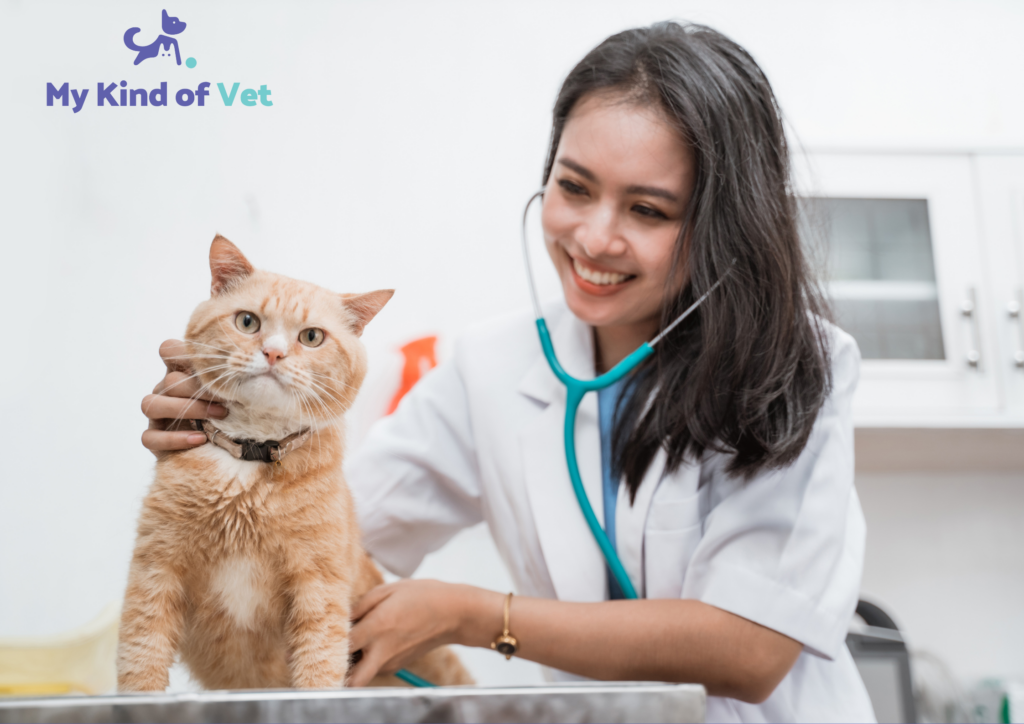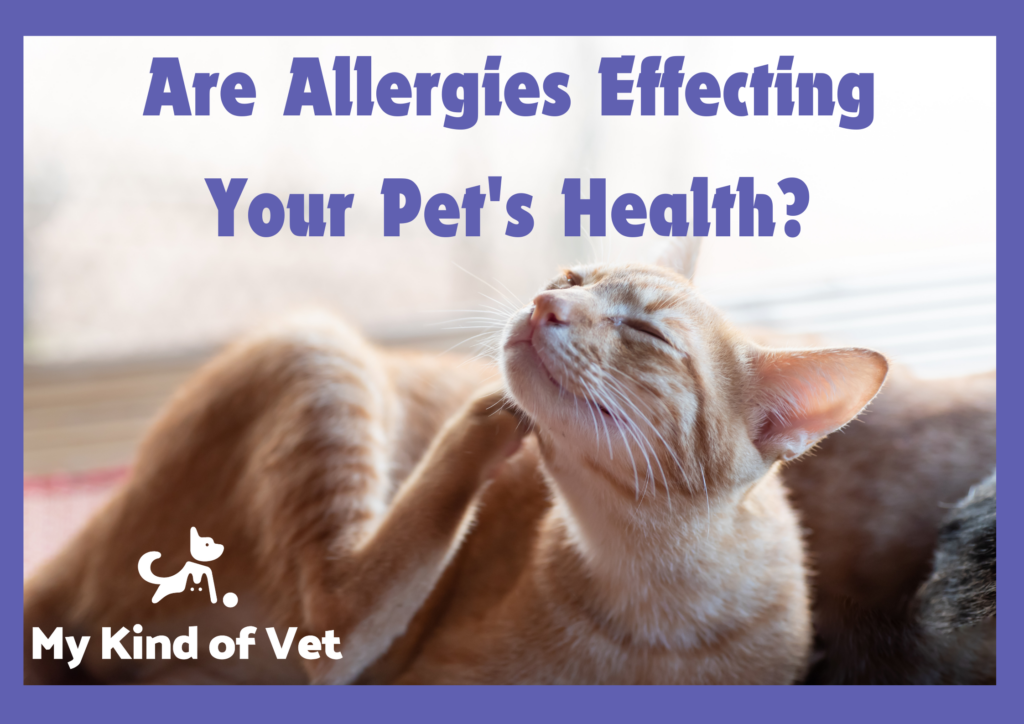Allergies in pets can be a significant concern for both animals and their owners, leading to discomfort and health issues for our furry companions. Pets can develop allergies to a variety of environmental factors, including pollen, dust mites, or certain foods, which can manifest through symptoms like itching, excessive scratching, and digestive problems. Understanding the causes and signs of allergies in pets is essential for providing them with the proper care and relief they need. This post will delve into the common types of allergies in pets, their symptoms, and effective management strategies to help keep your animal companion comfortable and health
What is an allergy?
An allergy is an exaggerated immune response to a substance that is normally harmless, such as pollen, dust, or certain foods. When a person or animal with allergies encounters this substance, known as an allergen, their immune system mistakenly identifies it as a threat and overreacts.
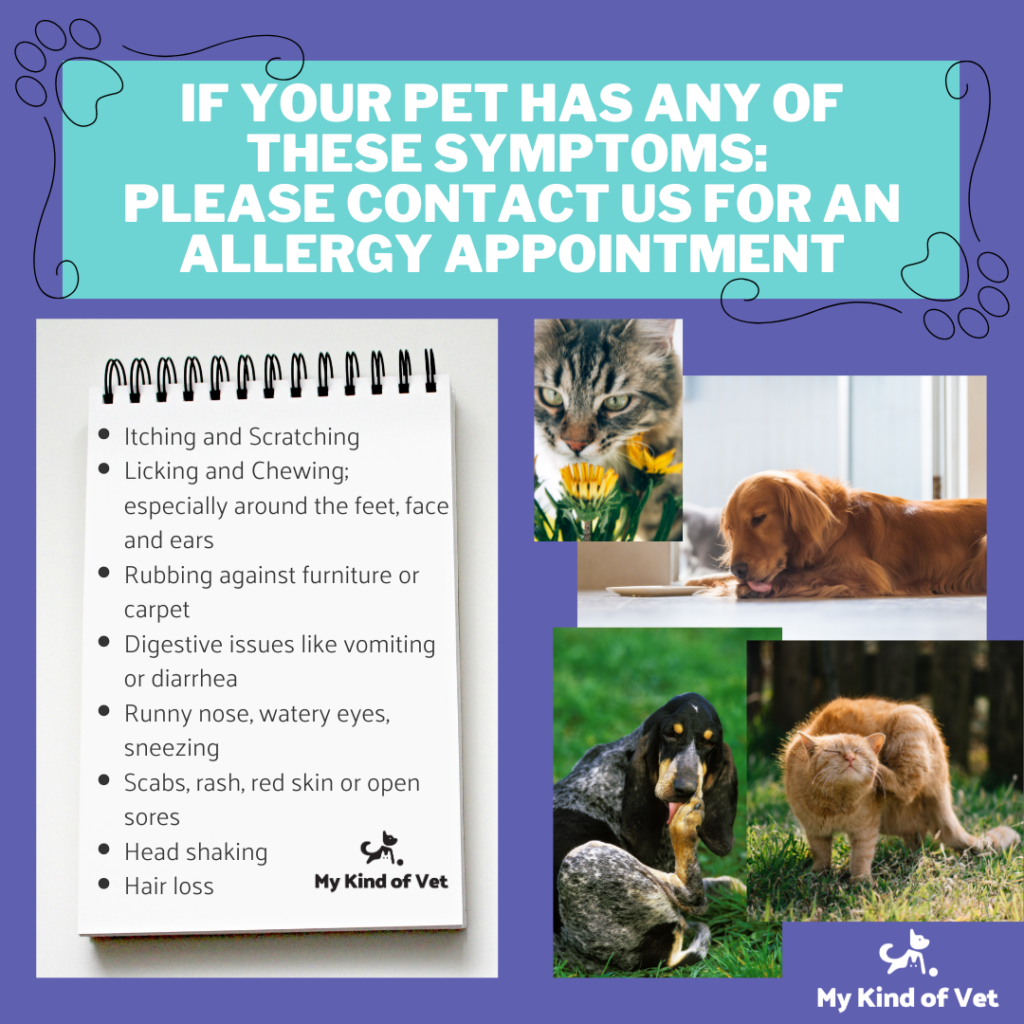
What are the symptoms of allergies in pets?
Allergies in cats and dogs can manifest through a variety of symptoms, such as;
Common Symptoms in Cats:
Itching and Scratching: Often seen around the head, neck, and tail.
Red or Inflamed Skin: Can appear as rashes or hot spots.
Hair Loss: Patchy or generalised thinning of the fur.
Ear Infections: Signs include scratching at the ears, head shaking, or a bad odor from the ears.
Watery or Runny Eyes: Discharge or redness around the eyes.
Sneezing or Coughing: May be less common but can occur.
Vomiting or Diarrhea: Gastrointestinal issues can be linked to food allergies.
Swollen Face or Limbs: Can be due to severe allergic reactions.
Behavioral Changes: Increased irritability or lethargy.
Common Symptoms in Dogs:
Itching and Scratching: Especially around the paws, ears, and belly.
Red or Inflamed Skin: Rashes, hot spots, or sores.
Hair Loss: Often in specific areas or more generalised.
Ear Infections: Symptoms include shaking the head, scratching ears, or a foul smell.
Watery or Runny Eyes: Discharge or redness in the eyes.
Sneezing or Coughing: Can indicate respiratory allergies.
Vomiting or Diarrhea: Can be linked to food allergies or environmental factors.
Swollen Face, Ears, or Paws: Possible sign of a severe allergic reaction.
Behavioral Changes: Increased restlessness or changes in activity levels.
If you suspect your pet is suffering from allergies, consulting a veterinarian is essential for accurate diagnosis and effective treatment
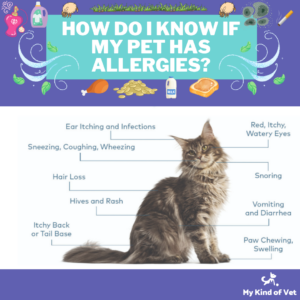
How can I help reduce or prevent allergy symptoms in my pet?
Allergen Prevention for Dogs and Cats: Creating a Happy, Healthy Home
Our furry family members deserve an allergy-friendly environment. Here’s how to prevent allergens and keep your pets thriving:
Regular Grooming: Brush and bathe your pets regularly to remove allergens from their fur. Long-haired breeds may benefit from more frequent grooming.
Clean Bedding: Wash your pet’s bedding, toys, and blankets in hot water regularly to reduce dust mites and allergen buildup.
Vacuum Smart: Invest in a vacuum cleaner with a HEPA filter to trap pet dander, pollen, and dust. Vacuum high-traffic pet areas frequently.
Air Purifiers: Consider using air purifiers equipped with HEPA filters to reduce airborne allergens indoors.
Allergy-Friendly Foods: Consult your veterinarian for advice on selecting pet foods that support skin and coat health, especially if your pet has food sensitivities.
Allergen-Free Zones: Designate clean spaces in your home where your pets can find relief from allergens, such as a well-ventilated room.
Outdoor Paw Care: After outdoor excursions, wipe your pet’s paws to remove pollen and allergens they may have picked up.
Regular Vet Visits: Maintain regular vet check-ups to monitor your pet’s health, discuss allergies, and receive guidance on prevention and treatment.
Supplemts: Providing good quality supplements to assist with good immune function and skin and coat health.
By taking these steps, you can help create a comfortable, allergen-friendly haven for your furry companions.
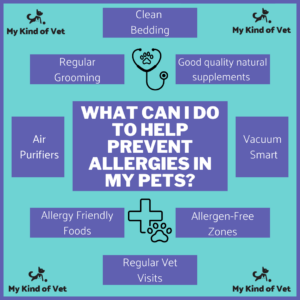
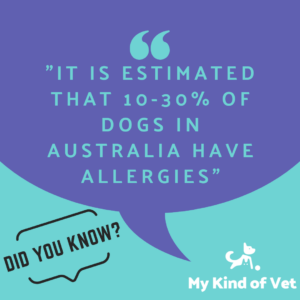
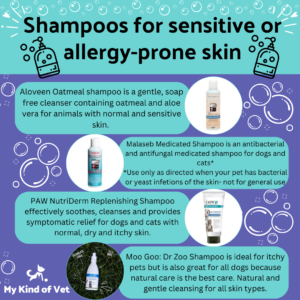
What testing might be recommended during my pets allergy journey?
Determining the cause of any allergy can be quite a difficult process, as there are so many numerous causes, and sometimes multiple causes!
Your vet may recommended diagnostic testing to gain more information, narrow down the possibilities and offer the best suited treatments for your pet. Some of these tests might include:
* Blood testing
* Urine analysis
* Ear swab analysis
* Sample cytologies or cultures at the laboratory
* Elimination diet tests
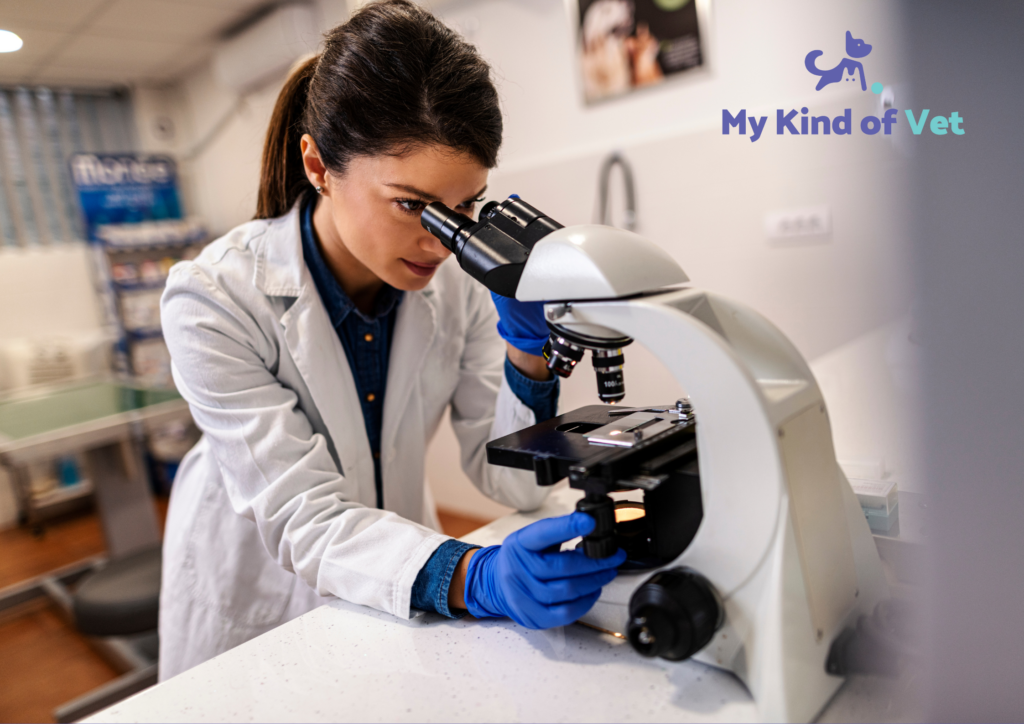
What treatment options are available for my pets allergies?
Treatment options will vary greatly depending on your pets personalised diagnosis and their particular allergen causes. Some available treatment options are listed below:
Good quality supplements
Medicated shampoos and cleaners
Natural topical treatments or balms
Prescription oral medications, injections or creams
Contaminate avoidance products such as body suits or paw wipes
Specialised diets
Referral to a dermatology specialist
The best treatment starts with knowledge. When it comes to allergies, knowledge is power! Allowing your vet to thoroughly investigate, diagnose and treat your pet, in a way specialised to them is how to successfully help your pet with their allergies!
